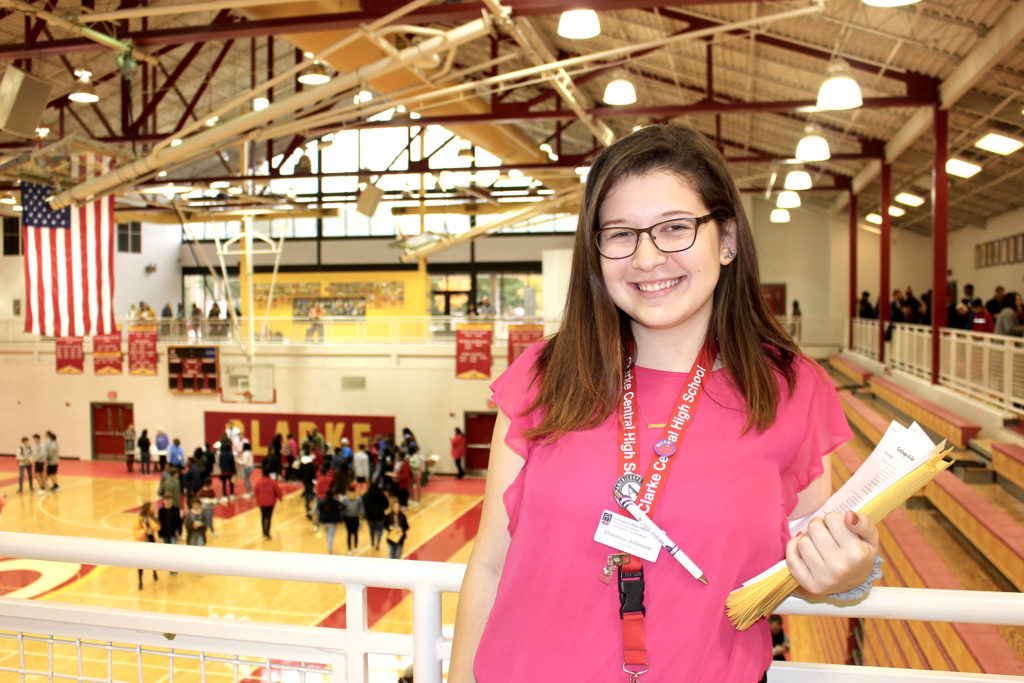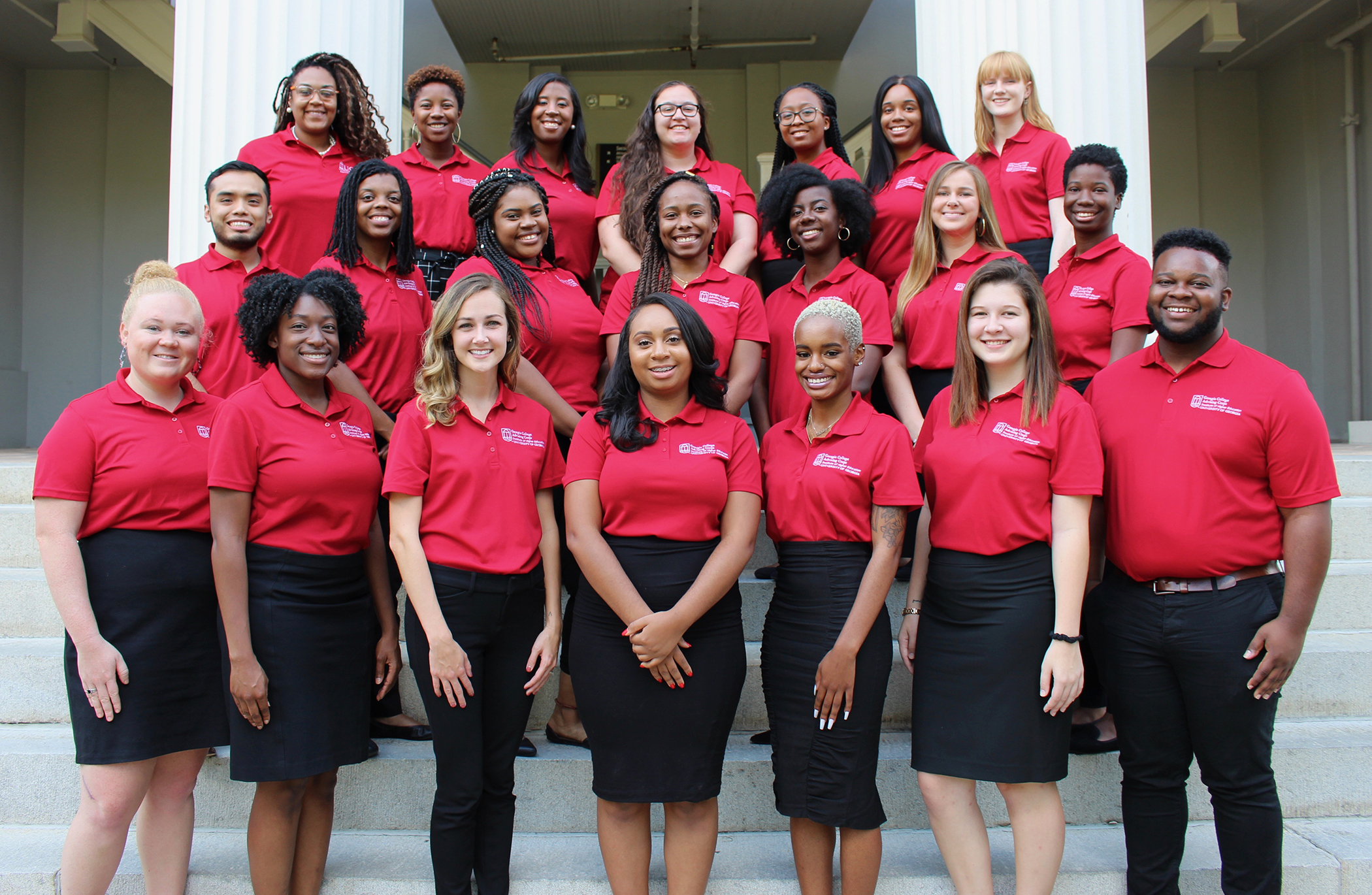Brionna Johnson always had big dreams of going to college. She did well in high school, but her parents and peers didn’t have any experience to offer help in figuring out how to apply to a university.
“I didn’t even know what I didn’t know,” Johnson said. “I didn’t go to any college fairs. I didn’t study for the SAT/ACT. I didn’t know what a FAFSA (financial aid form) was until my orientation at the University of Georgia.”
Many potential college students encounter those issues, especially those with limited resources who are the first in their family to pursue higher education. To help students like Johnson, UGA’s Institute of Higher Education launched the Georgia College Advising Corps a decade ago as a resource in underserved high schools to guide seniors through their college admissions journey.
The corps is comprised of 21 recent college graduates, many of whom were first-generation, underrepresented or low-income students themselves, to work alongside school counselors at 16 high schools throughout Georgia. Now, Johnson is a member of the team.
“Working as an adviser has helped me to dive deeper into my passion for service,” she said of her placement at Clarke Central High School in Athens. “I most enjoy building relationships with students and their parents or families and being able to give the advice and encouragement that I so badly needed when I was in their shoes. It has been so much fun getting to see students reach the goals they set for themselves.”

The Georgia College Advising Corps program is one of 25 partners of the national College Advising Corps, which began as an effort at the University of Virginia in 2005 to help low-income, first-generation and unrepresented students navigate the college admissions and financial aid process.
“The Georgia College Advising Corps has reached more than 28,500 high school students since its founding a decade ago, and the program continues to expand,” said Interim Provost Libby V. Morris, who founded the program at UGA as director of the Institute of Higher Education. “The dedication of our advisers and the support of our donors are transforming the lives of young people while helping our state meet its critical goal of increasing college participation and completion.”
The program has quadrupled its presence in the past decade, and its impact is measurable. High school seniors who met with a GCAC college adviser during the 2017-2018 school year were 21% more likely to visit a college or university, 20% more likely to apply for a scholarship and 30% more likely to apply to at least one college.
Program alumni
Hannah Gale, a student served by the Georgia College Advising Corps at Clarke Central High School last year, said she made mistakes with one college application, but thanks to her adviser, she was able to apply to eight universities and chart a course toward her dream of becoming a teacher.
“My adviser really helped me narrow down my options as well as realistically choose where my best fit would be,” said Gale, currently a first-year student at UGA. “Money was a big deciding factor for which school I would be attending, so she also helped me find scholarships.”
Jessica Robinson, who directs the Georgia College Advising Corps, said that in addition to coordinating financial aid workshops, helping students register for college placement tests and planning college tours, advisers meet one-on-one with students. “Individual meetings provide opportunities for advisers to offer information and inspiration by engaging students in meaningful conversations about their postsecondary plans,” she said. “This year our advisers have met with 94% of seniors at our partner high schools and have held 14,115 one-on-one meetings with students.”
The experience can be life-changing for the advisers as well. Of the 73 Georgia College Advising Corps alumni from the past decade, 85% have pursued careers related to the program’s mission, including work in K-12 and higher education as academic advisers, counselors, student affairs professionals and teachers.
“I saw so much of myself in my students, the majority of whom identified as students of color from low-income backgrounds with hopes of being the first in their family to go to college,” said Janai Raphael, who worked as a GCAC adviser at Maynard H. Jackson High School in Atlanta from 2016 to 2018 and is now enrolled in a master’s degree program in higher education at the University of Maryland. “It was an honor to play a small part in the lives of so many students and help them to achieve their dreams.”


